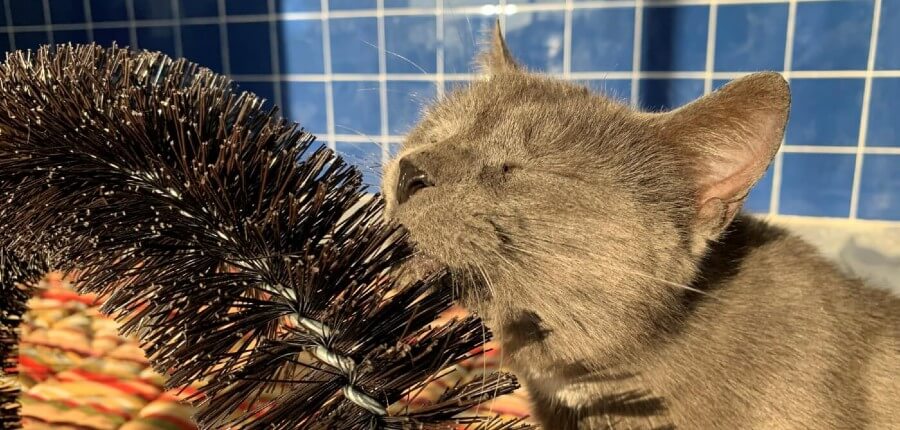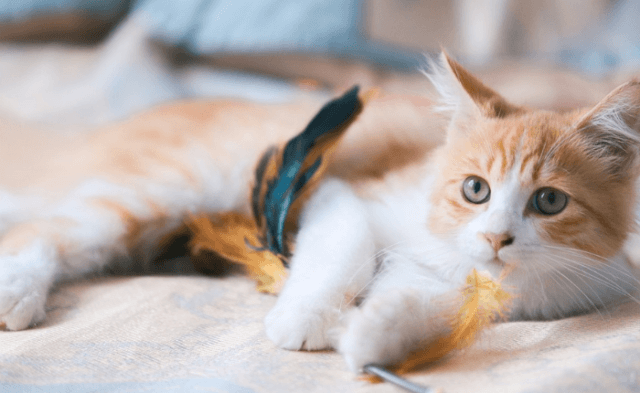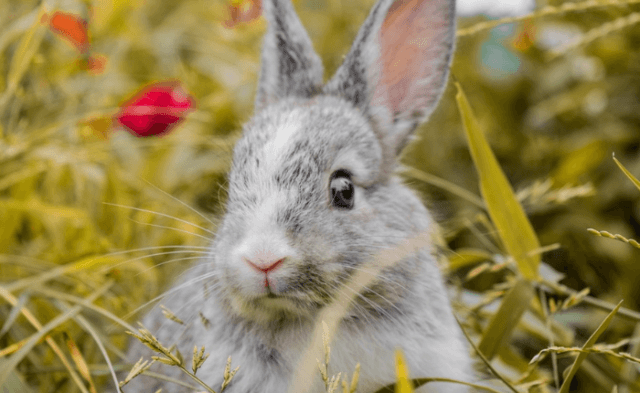November is “Adopt a Senior Pet” Month, and as anyone who has adopted an older animal can tell you, age is just a number. Furry seniors still have a lot of life—and love—left. Just ask anybody who has met Pepsi or Itchy.
Like so many homeless animals, Pepsi lost his home through no fault of his own. His guardian was a victim of domestic violence and had to move suddenly, so she called PETA and asked for help placing him. Although he’s otherwise healthy, Pepsi has the feline AIDS (FIV) virus, so he needed to live with other FIV-positive cats or be the only cat in the home. He stayed at one of PETA’s offices until he was adopted by a couple with no other cats. Pepsi is the definition of a cool cat who loves to go on supervised outdoor jaunts on a leash and harness.
Itchy spent the first eight years of his life in a junk-filled pen. Finally, a PETA fieldworker noted during a routine visit that the dog’s persistent cough—because of heartworm disease—had gotten markedly worse. His owners, realizing that he would die without help, agreed to surrender him. Ecstatic at the opportunity to get out of his garbage-strewn pen, the first thing Itchy did was sniff and explore while wagging his tail like mad.
After weeks of TLC and treatment for a severe whipworm infestation, Itchy gained more than 20 pounds and was deemed well enough to be neutered, which alleviated his painfully enlarged prostate, and to be treated for heartworms. The family that had generously sponsored his treatment took their commitment to his care one step further and decided to adopt him. They didn’t care that his eyes are cloudy, that his joints are creaky, that he barks too loud because he’s going deaf and can’t hear himself, or that his incisors are worn down from years of chewing on anything within reach to alleviate the unrelenting boredom. All they care about is that he’s happy.
When Itchy’s and Pepsi’s new guardians look at them, they see spunky animals who embrace life with gusto. These animals never gave up, so why should their guardians give up on them?
There are numerous benefits to adopting an “oldie but goodie” from an animal shelter or a rescue group, including the following:
- What you see is what you get: There are no mysteries about a senior animal’s adult size, personality, energy level, or grooming needs.
- They know the ropes: Experienced animals are often pros at basic skills such as walking on a leash and sharpening their claws on a scratching post instead of on your couch.
- Less mess: Most adult animals are housetrained and well past the destructive chewing phase.
- They have social graces: Boisterous puppies and kittens may unintentionally annoy the dogs and cats who are already part of the family. Older animals learn and respect boundaries more quickly.
- Endless love: Many guardians of rescued dogs and cats swear that their animals are grateful for being given a second chance and are extra loyal to their rescuers.
If you have the time, energy, and resources to devote to providing a four-legged companion with lifelong care, visit your local animal shelter or search Petfinder.com for local rescue groups. Many offer extra incentives during “Adopt a Senior Pet” Month.








